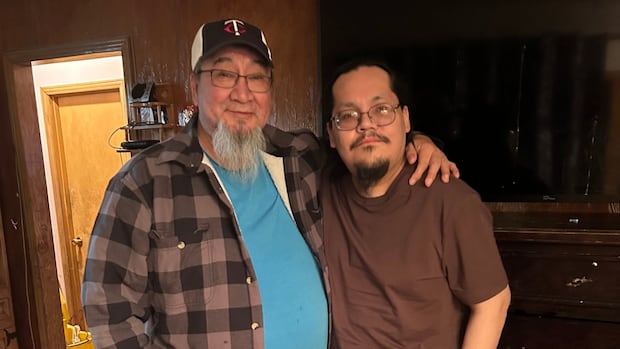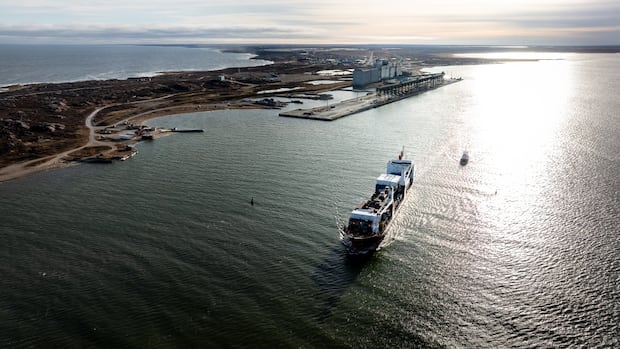There’s a mysterious move afoot to push Premier Doug Ford’s Ontario PC government to adopt more fiscally conservative policies.
Calling itself “Project Ontario,” the initiative launched quietly on the weekend with a one-page website and an unsigned manifesto posted by The Hub, an online news and commentary outlet.
“When conservatives lose their principles, Ontario loses its way. Let’s change course,” says the website.
“We’re organizing an assembly of Ontario conservatives this fall that we’d love to tell you more about,” it adds, encouraging people to submit their name, email address and postal code to get more details.
The call for change comes only a few months after Ford led his Progressive Conservatives to a third consecutive majority, something that no party leader has accomplished in the province since the 1950s.
It’s unclear who’s behind Project Ontario.
The editor-at-large of The Hub, Sean Speer, told CBC News he is not involved, but offered to pass on an interview request to the authors of the manifesto. CBC News also sent a message to the Project Ontario website, but received no response to any inquiry.
Ginny Roth, a longtime organizer within both the Ontario PC Party and the federal Conservative Party, posted a link to Project Ontario on social media and wrote, “I’ll be signing up to be part of the conversation.” CBC News asked Roth for an interview, but she declined.
‘Grassroots movement of conservatives’
The manifesto published on The Hub goes into more detail than the group’s web page about the philosophy behind Project Ontario. It speaks of the province in bleak terms, describing economic decline, punitive tax rates and businesses weighed down by mounting red tape.
“Project Ontario is not just another political group. It is a grassroots movement of conservatives who are ready to think big, act boldly, and put forward practical, principled solutions,” says the article.
“We are bringing together conservatives from across Ontario — party members, business owners, policy experts, and engaged citizens — to build a shared vision for the province’s future,” it continues. “Together, we will craft a policy framework that applies conservative values to today’s most pressing issues.”
There are no signs Ford and his PC Party are particularly worried that the so-far anonymous push from Project Ontario poses any sort of political threat.

“The premier is focused on delivering his mandate to protect Ontario, which he secured with his third consecutive majority election victory,” said an official from Ford’s office in an email to CBC News.
Kory Teneycke, who managed all three of Ford’s successful campaigns, dismisses Project Ontario as a small thing.
‘Far outside the mainstream’
“They’re far outside the mainstream of the party and they’re far outside the mainstream of the conservative voter coalition,” Teneycke said in an interview.
Ford is “the most popular conservative in Canada by a country mile,” said Teneycke.
Patrice Dutil, a professor of politics and public administration at Toronto Metropolitan University, says Ford’s record of running large budget deficits runs contrary to the wishes of many conservatives who want smaller government in the province.
“There has long been in Doug Ford’s Ontario a rump of conservatives who are deeply unhappy with the way he governs,” said Dutil in an interview.
Jamil Jivani, the Conservative incumbent for Bowmanville-Oshawa North who is known for his friendship with U.S. Vice President JD Vance, is projected to win his seat. During an interview with CBC’s David Common, Jivani made some sharp remarks about Ontario Premier Doug Ford, saying that he’s ‘not doing anything particularly well.’
The way Ford governs “speaks to conservative values on occasion, but it’s also almost indistinguishable from the liberal approach to spending,” he said.
But Dutil says it’s hard to tell at this stage what exactly Project Ontario intends to accomplish.
“At this point, it’s really nothing more than what seems to be a seed,” said Dutil. “Maybe they’ll put some some policy meat on their bones. But right now we don’t even have bones.”
Competing visions for conservatism in Canada have been on full display in the aftermath of Ford’s election win in February and Pierre Poilievre’s failure to lead his Conservative Party of Canada to victory in April’s federal election campaign.
Tensions between Ford’s and Poilievre’s teams burst into the open when Teneycke publicly and sharply criticized the Conservatives for blowing a 20-point lead in the polls and failing to pivot the focus of their campaign to the threats from U.S. President Donald Trump.
Then on election night, Conservative incumbent Jamil Jivani unloaded on Ford during a live interview with CBC’s David Common, slamming the premier he once worked for as an “opportunist” and calling his advisers “goons.”
Ontario Premier Doug Ford, speaking from Toronto on Monday, says Pierre Poilievre ‘would not be in the position he’s in right now’ if outspoken strategist Kory Teneycke were running the federal Conservative leader’s campaign. But Ford added there is ‘still a lot of time left.’
Teneycke says the timing of Project Ontario’s launch is unusual given Ford’s election win and the federal party’s loss.
“I think they would lose a lot less if they emulated Doug Ford more,” Teneycke said.
Melanie Paradis, president of Texture Communications and a veteran conservative strategist, dismisses Project Ontario as a “faceless, nameless group” offering no substance.
“Anyone who thinks Doug Ford is insufficiently conservative has fever-dreamed an impossible standard of conservatism that no politician in Canada could meet,” said Paradis in a text message.
The advent of Project Ontario is not the first time there have been rumblings against Ford from the right, but those previous critiques have come more from social conservative elements in the party than from fiscal hawks.
Members who either were kicked out of the PCs or became disaffected with Ford joined two breakaway right-wing parties, the New Blue Party and the Ontario Party. Both fielded significant numbers of candidates across the province in the 2022 and 2025 elections, but did not come anywhere close to winning a seat.







